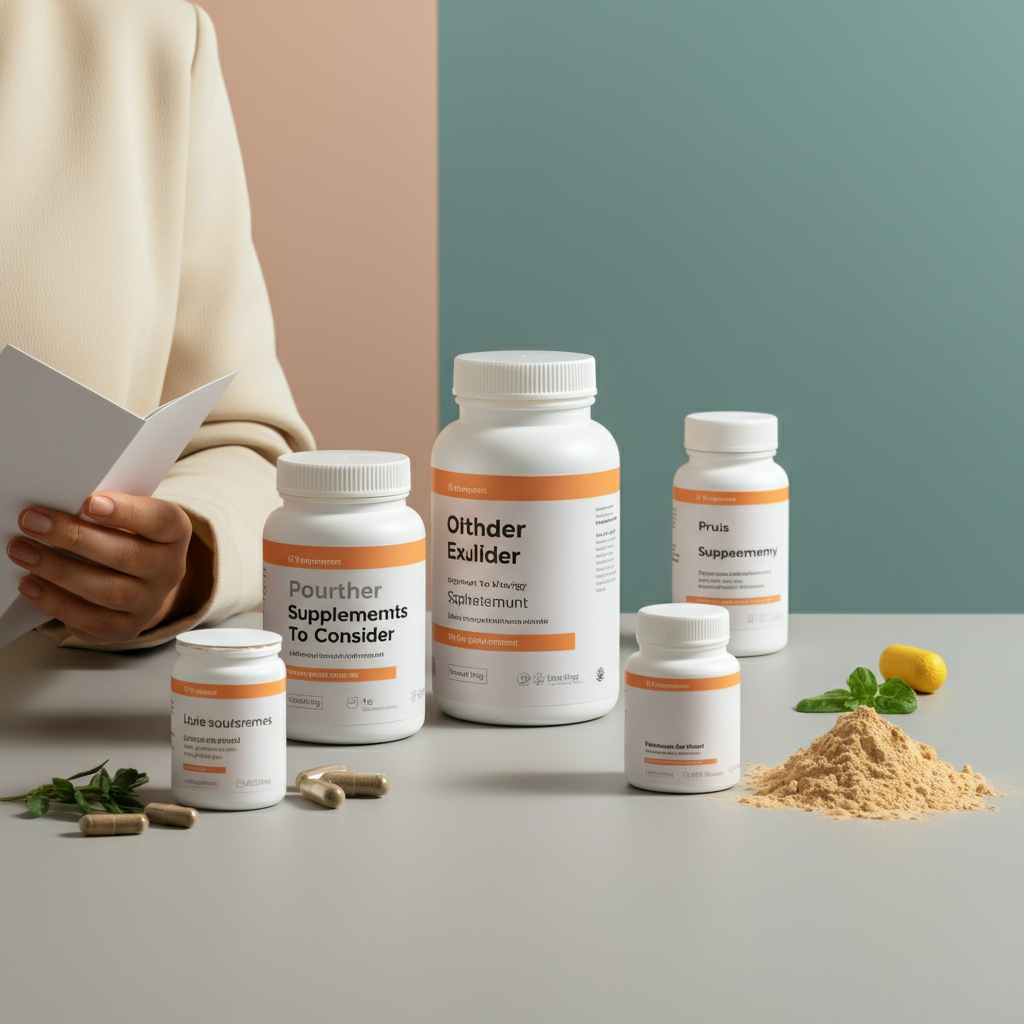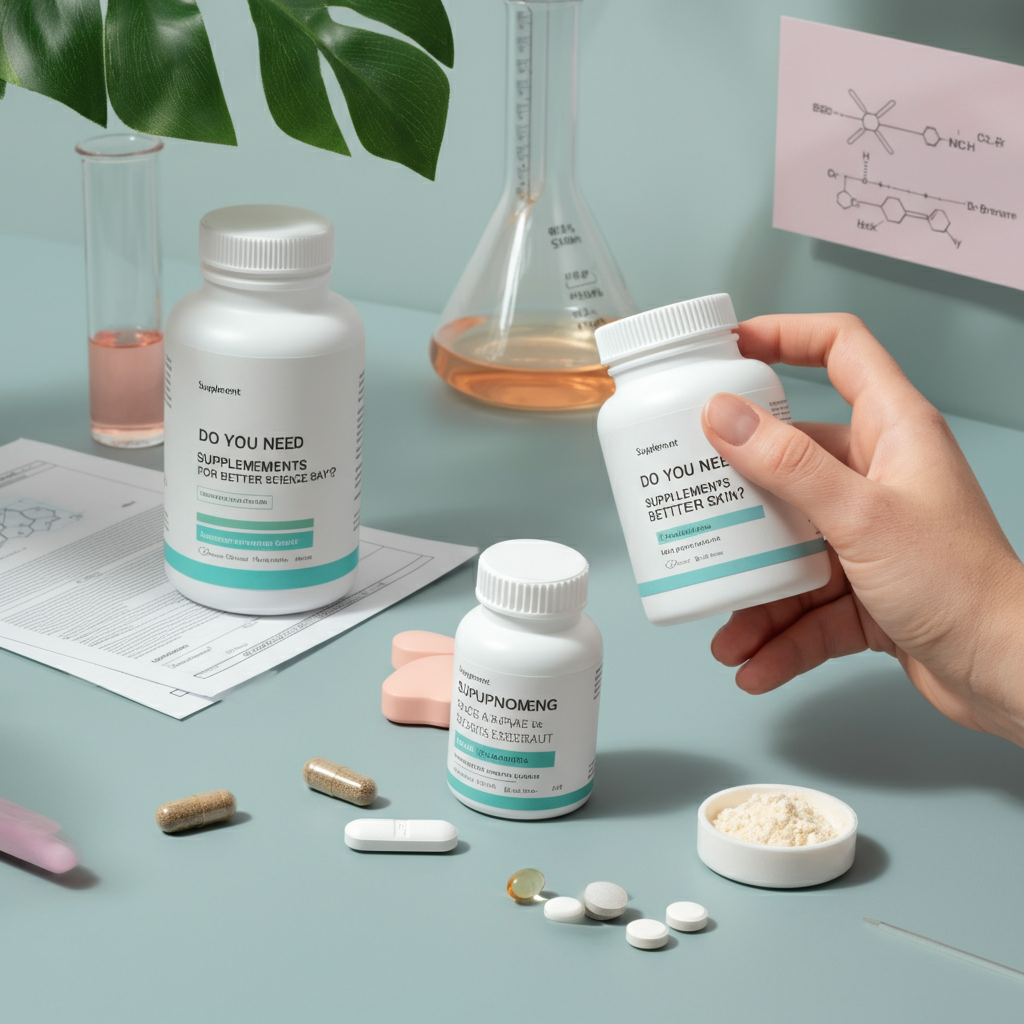Achieving glowing, healthy skin often feels like chasing a dream. With countless skincare products promising magical results and supplements claiming to transform your complexion, where do you even begin? Among these options, the question of whether supplements for better skin actually work looms large.
This blog dives into the science behind skin supplements, exploring what works, what doesn’t, and how to approach skin health in a balanced, informed way. By the end, you’ll have clarity on how supplements can play a role in your skincare routine without falling for the hype.
Understanding Skin Health
Your skin is the largest organ of your body and its first line of defense against the outside world. But if you truly want to achieve radiant skin, understanding how it works is key.
The Basics of Skin Structure and Function
Your skin has three primary layers:
- Epidermis – The outermost layer that protects your body from external elements.
- Dermis – The middle layer containing collagen, elastin, and blood vessels.
- Hypodermis – The deepest layer that stores fat and provides insulation.
Healthy skin relies on nutrition, hydration, and lifestyle habits, all of which influence the regeneration and repair of these layers.
Factors That Impact Skin Health
- Diet: Nutrients like vitamins, minerals, and antioxidants are essential for maintaining youthful, glowing skin.
- Environment: Pollution and UV exposure accelerate skin aging by creating free radicals.
- Lifestyle: Stress, poor sleep, and dehydration wreak havoc on the health and appearance of your skin.
Key Vitamins and Minerals for Skin
Vitamin A
Benefits:
Vitamin A is essential for healthy cell production and can reduce discoloration and fine lines.
Sources:
- Food: Sweet potatoes, carrots, spinach.
- Supplements and Skincare: Retinoids (topical versions of Vitamin A) also work wonders.
Fun Fact:
Retinol, the skincare superhero, is a derivative of Vitamin A and is known for its anti-aging properties.
Vitamin C
Benefits:
Vitamin C boosts collagen production, fades dark spots, and provides antioxidant protection.
Sources:
- Food: Citrus fruits, strawberries, and broccoli.
- Supplements: Available in powders, capsules, or even shots.
Science Says:
A 2017 study suggested that Vitamin C helps prevent UV damage and supports wound healing, proving its worth as a key player in skincare.
Vitamin E
Benefits:
Known for its moisturizing and anti-inflammatory properties, Vitamin E protects skin from oxidative stress.
Sources:
- Food: Nuts, seeds, and spinach.
- Supplements and Topicals: Often paired with Vitamin C in skincare formulations for maximum efficacy.
Zinc
Benefits:
Zinc is critical for skin repair, wound healing, and reducing acne.
Sources:
- Food: Oysters, pumpkin seeds, and legumes.
- Supplements: Commonly included in multivitamins targeted at acne-prone skin.
Selenium
Benefits:
Selenium is a powerful antioxidant that soothes inflammation and slows down signs of aging.
Sources:
- Food: Brazil nuts, eggs, and fish.
- Supplements: Selenium is often combined with vitamin E for comprehensive skin support.
Other Supplements to Consider

Collagen
Benefits:
Collagen supplements replenish the natural collagen your skin loses with age, improving elasticity and hydration.
How It Works:
Hydrolyzed collagen peptides are easily absorbed by the body and stimulate new collagen production.
Omega-3 Fatty Acids
Benefits:
Omega-3s, found mainly in fish oil, reduce inflammation, keeping skin supple and preventing dryness.
Probiotics
Benefits:
Probiotics strengthen the gut-skin axis, reducing eczema, acne, and even redness.
Sources:
- Foods like yogurt or fermented options (e.g., kimchi).
- Supplement options that are rich in active cultures.
Debunking Myths
It’s time to bust some myths about supplements and skin health.
Myth 1: Supplements Work Overnight
Truth? Achieving visible results takes time. Most changes require at least 4–8 weeks of consistent use.
Myth 2: Supplements Replace a Healthy Diet
Supplements should complement your diet, not act as substitutes. A plate full of colorful veggies often does more for your skin than a handful of pills.
Myth 3: Topical Skincare Is Enough
Both topical skincare and internal supplementation are important. Think of them as a team working together to give you glowing skin.
Creating a Supplement Routine
Step 1: Consult a Healthcare Professional
Before starting any supplements, consult a dermatologist or healthcare professional to ensure there are no risks or dosage issues.
Step 2: Personalize Your Routine
Each individual’s skin is different. Focus on your unique needs, whether that’s targeting acne, hydration, or anti-aging.
Step 3: Monitor and Adjust
Track changes in your skin over time. If a supplement doesn’t work, don’t hesitate to try alternatives.
Lifestyle and Diet Tips for Radiant Skin
Supplements are powerful, but they’re only part of the equation.
Focus on Hydration and Stress Management
- Drink at least 8 glasses of water daily.
- Reduce stress through mindfulness, exercise, or hobbies.
Sleep Like it’s Your Job
Aim for 7–9 hours of beauty sleep to allow your skin to repair itself overnight.
Nutrient-Dense Foods for Healthy Skin
- Antioxidant-rich fruits and veggies.
- Healthy fats from avocados and nuts.
- Omega-3-rich fish like salmon.
Real-Life Examples
Carla’s Story:
Carla, a working mom, started taking a collagen and Vitamin C supplement daily. After three months, she noticed her skin felt firmer, and her makeup-free confidence skyrocketed.
These examples remind us that consistent care delivers results.
People Also Ask
Can supplements really improve skin health?
Yes, when combined with a balanced lifestyle, the right supplements can enhance skin health from the inside out.
What is the best vitamin for skin?
Vitamin C is widely regarded as the ultimate skin vitamin for its antioxidant and collagen-boosting properties.
Should I replace skincare with supplements?
No. Topical care and supplements work best when used together for optimal results.
A Balanced Approach to Achieving Glowing Skin
Supplements can be a powerful addition to your skincare routine, offering targeted support for improving your complexion and boosting overall skin health. However, the key to radiant skin lies in balance. Combine supplements with a nutrient-rich diet, a consistent skincare routine, and lifestyle habits that promote overall wellness.
It’s not about perfection; it’s about giving your skin the care it deserves. Take the first step today by adding a supplement tailored to your specific needs! Remember, consult a healthcare professional before starting any new routine to ensure the best results.
